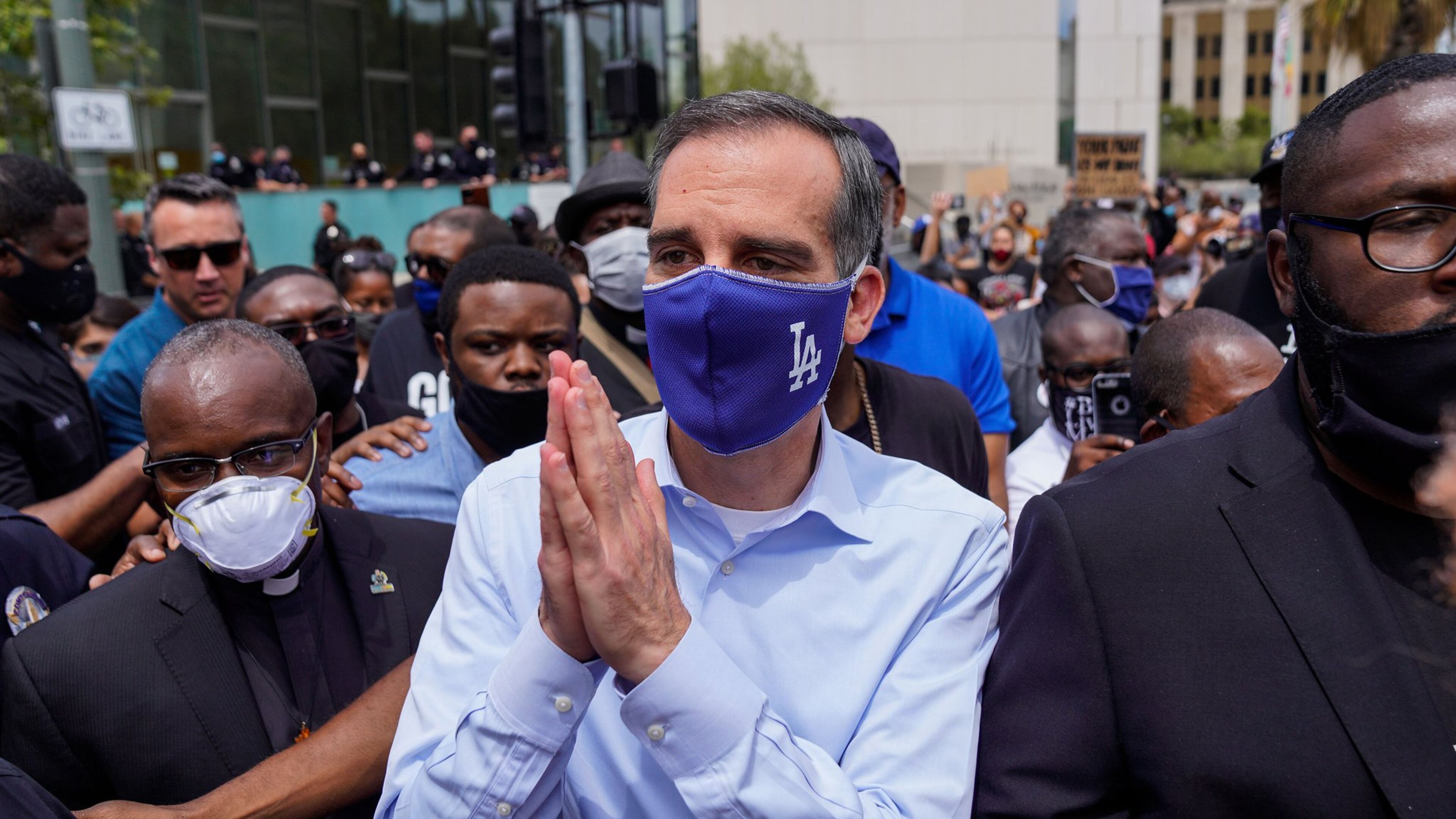Opinion: Renaissance of moral leadership needed now

In the face of widening polarization among the American people, and a deepening crisis of trust and leadership from President Trump, it is time to call for a renaissance of moral leadership. We need leaders, in the White House and in every important institution in our society, who possess virtues like integrity, courage, imagination and wisdom.
Virtue in a leader is necessary, but not sufficient. She or he must also be competent and courageous. When you know what he or she is doing, they can have the confidence and courage to act boldly when required. And, such leaders should have the disposition to invite and welcome others to the enterprise. Leaders must ensure that strangers, and even nonconformists, are welcomed.
Our democracy requires leaders and citizens with basic moral qualities of decency, honesty, respect, kindness and friendship. We need leaders who can revive civility and goodness in our local communities and in the nation.
I call for the rebirth of such leadership because we have had it before. I highlight four leaders from whom we can learn much: Ella Baker, the African American community activist who supported the college and high school students who created the Student Nonviolent Coordinating Committee (SNCC); Delores Huerta, the Mexican American activist who led the Chicano farm workers in California (and she is still with us); Cesar Chavez, the founder of the United Farm Workers alongside Huerta; and Dr. Martin Luther King, Jr., the Atlanta minister who went on to become a global symbol of nonviolent protest and social justice. We have seen moral leadership. None of them was or is perfect. As Oscar Wilde said, “every saint has a past, every sinner has a future.” But moral leaders distinguished themselves by bringing their full, honest selves to the work of uplifting humanity and becoming advocates for the least advantaged members of society.
Those same leadership qualities are with us today, and we need to encourage more of it. During the recent protests against the tragic murder of George Floyd by a few police in Minneapolis, we have seen integrity, courage, imagination and wisdom by ordinary people from every community in our nation. Police chiefs have knelt with protesters to demonstrate shared values and outrage at injustice. Mayors and governors have gone into the streets to meet and listen to protesting citizens. Groups of young people have intervened to rescue and protect vulnerable individuals who became trapped in volatile situations. All of the marks of good citizenship and humanity are now on display.
The “better angels of our nature” have been released and they will always drown out the selfish and destructive impulses of people bent on destruction and harm to others. What will happen to that positive energy? Who will requisition those energies into something sustainable, creative and redemptive?
New leadership in Congress and the White House and in local states and municipalities is just one part of the answer. Elections are a few months away. People can take action and choose better leaders. But, in order to sustain the energies that will address our lingering racial inequalities and the challenges of poverty and lack of opportunity for masses of people, we will need moral leadership.
Such leadership can be taught, at least large and necessary components of moral leadership are teachable. But we will need public and private structures to help convene people from varieties of backgrounds who want to help this nation change its course by having more productive conversations about our racial past and our moral possibilities for a better future.
Schools that educate our over 76 million students will have a critical role to play. For schools that do not fully open this fall, perhaps there are service opportunities for community-building for which students and faculty could get credit. Businesses should also play a leading role as they accelerate their own diversity but also promote and sponsor opportunities for people to build bonds of common humanity.
Our houses of worship are natural leaders in inviting people into community and modeling respect and cooperation for the common good. Nonprofits and foundations should invest in these initiatives and intensify the good work they are already doing. Artists must help us dream of a new future, and they should be compensated since they may not yet be able to perform or exhibit their work for the masses. But it is up to our elected officials, those whom we pay and who take oaths to serve with honor, who must set the right tone at the top.
Let a rebirth of moral leadership begin.
Robert M. Franklin is the James T. and Berta R. Laney Professor in Moral Leadership at Emory University’s Candler School of Theology and author of the book, “Moral Leadership: Integrity, Courage, Imagination.”


